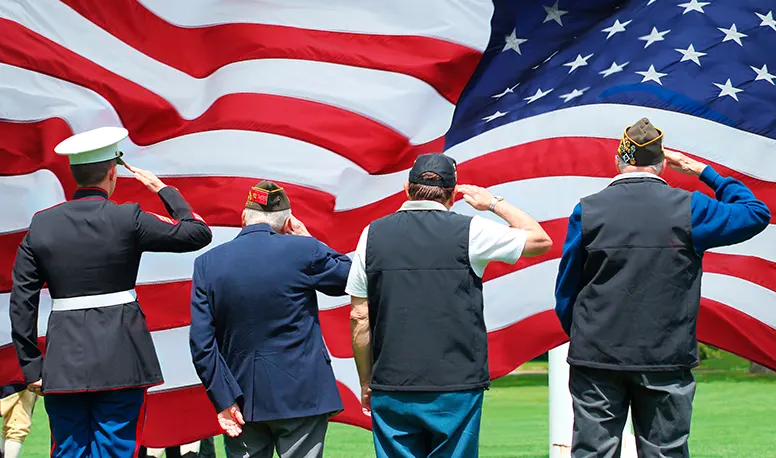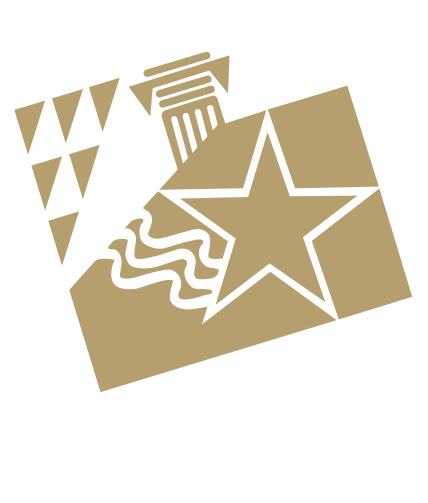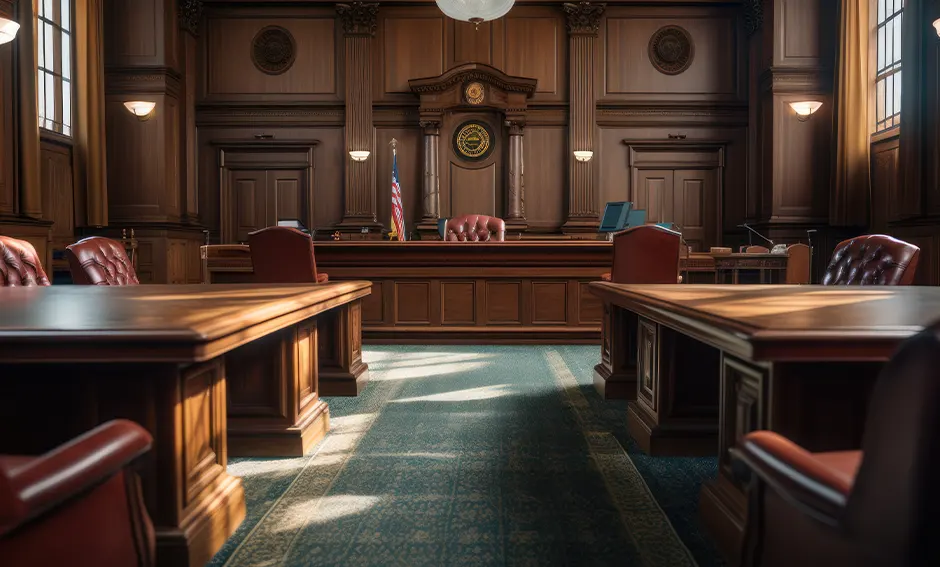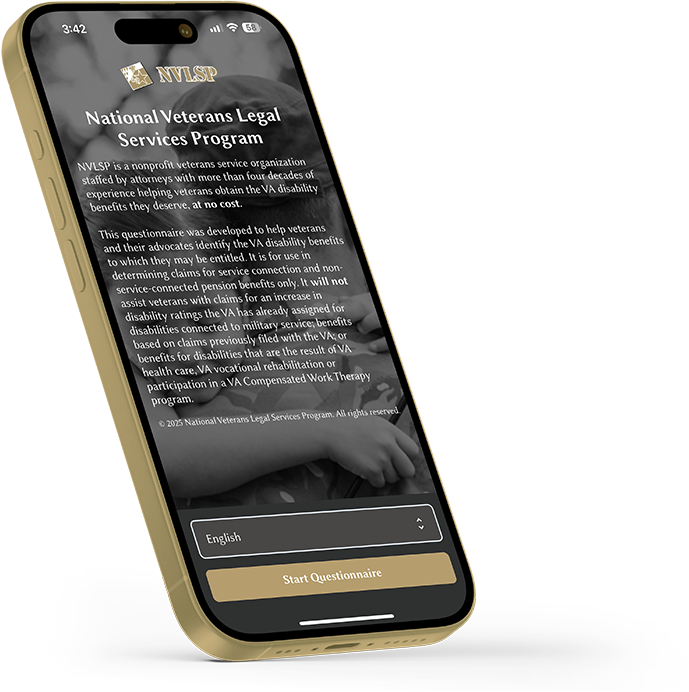History & Milestones
Ensuring the Promise
It is a simple proposition. When entering the military, service members take an oath to defend our nation. In exchange, the government promises to provide them with certain rights and benefits if they should be injured or become ill as a result of their military service.

Sadly, our government has fallen far short of this promise.
The National Veterans Legal Services Program (NVLSP) was created to ensure that our government does not break this solemn promise to our nation’s disabled veterans and their families.
While much has changed since our establishment in 1981, NVLSP’s commitment to seek justice for our veterans, service members and their families at no cost to them is unwavering.
How it Began
The National Veterans Legal Services Program (NVLSP) emerged from a project in the early 1970s that sought to assist service members who were separated from military service with a less-than-fully-honorable-discharge. The project was coined the National Military Discharge Review Project, and was managed by attorney David Addlestone. The Project was funded with grants from various foundations, including the Rockefeller Foundation and the Ford Foundation, to help veterans to obtain an upgrade from the military discharge review boards that handled appeals from a derogatory discharge. One of its notable achievements was the publication of the Practice Manual on Military Discharge Upgrading, the first comprehensive guide to help advocates assist veterans in removing the stigma associated with such discharges and overcoming barriers to veterans’ benefits.
The Power of Collaboration
In 1975, the project merged with Georgetown University Law Center’s Administrative Law Clinic, supported by the Carnegie Corporation of New York. This collaboration allowed Georgetown law students, under the supervision of staff attorneys, to represent veterans before military Discharge Review Boards (DRB) and Board for Correction of Military Records (BCMR). They also engaged in federal litigation aimed at reforming the military discharge system. Barton (Bart) Stichman, who joined the project in 1975, served as lead counsel in the landmark case Urban Law Institute v. Secretary of Defense, which required DRBs to provide written rationales for their decisions and make these decisions publicly available. Stichman also litigated class actions, including Giles v. Secretary of the Army and Wood v. Secretary of Defense, resulting in upgrades for over 7,000 Vietnam veterans who had received less-than-honorable discharges. These efforts significantly advanced transparency and fairness in the review of military discharges, impacts that continue to resonate today.”
By 1978, Addlestone and Stichman rebranded the project as the National Veterans Law Center (NVLC) at American University’s Washington College of Law. The NVLC expanded its focus to broader veterans’ issues, including PTSD and Agent Orange-related conditions, with law students representing veterans before various military and veterans’ appeals boards.

It’s Official: NVLSP is Established
In 1981, Addlestone and Stichman established NVLSP as an independent nonprofit. NVLSP’s mission was to ensure veterans and active-duty personnel received the benefits to which they were entitled because of disabilities resulting from their military service. Its inaugural project, funded by the Legal Services Corporation (LSC), produced a 700-page guide on military discharge upgrading and VA law. NVLSP also served as a national support center for veterans’ law issues, assisting legal services offices nationwide.
In 1984, NVLSP ended its affiliation with American University to help establish Vietnam Veterans of America’s VA-recognized program. NVLSP attorneys trained VVA’s advocates and represented veterans in VA appeals, continuing their mission to secure justice for those who served.
Changing the Legal Landscape: Repealing the Bar to Judicial Review and Access to Attorneys
In the 1980s, NVLSP and Vietnam Veterans of America (VVA) advocated for changes to two longstanding laws that hindered justice for veterans and their families for decades. The first law, in place since 1933, barred veterans from appealing VA benefits denials to a federal court, leaving VA decisions immune from independent review. The second law, enacted in 1862, made it a federal crime for a lawyer to charge more than $10 to represent a veteran in benefits claims, effectively preventing veterans from securing legal representation.
A turning point in NVLSP’s and VVA’s battle for justice advocating for the repeal of these two laws came in 1988. The Veterans’ Judicial Review Act was enacted, which established the Court of Appeals for Veterans Claims (CAVC) to review final VA decisions. It wasn’t until 2007 that Congress repealed the $10 lawyer fee limitation.
Despite these hard-won legal rights, veterans initially struggled to find legal representation for CAVC appeals, with over 80% appearing without counsel. To address this, Congress funded the Veterans Consortium Pro Bono Program in 1992. The program, a collaboration between NVLSP, Disabled American Veterans, The American Legion, and Paralyzed Veterans of America, has since recruited, trained, and mentored thousands of attorneys to represent veterans in court at no cost.
Since the Veterans’ Judicial Review Act, NVLSP has represented thousands of veterans in individual CAVC appeals and has filed class actions against VA policies. Today, NVLSP files hundreds of appeals annually before the CAVC for veterans winning well over 99% of the cases.
Class Action Litigation
NVLSP believes in the power of class actions and other reform litigation to help remove systemic barriers to justice. One of NVLSP’s most significant class action victories came in 1989 with the landmark Nehmer v. U.S. Veterans Administration class action. This case invalidated VA regulations that denied benefits to Vietnam veterans and their families for Agent Orange-related diseases. The 1991 Nehmer consent decree required the VA to pay retroactive benefits whenever new diseases were recognized as linked to Agent Orange. Since 2010, this decree has resulted in the VA paying over $5.5 billion in retroactive benefits to hundreds of thousands of Vietnam veterans and their families.

The Power of Education: The Veterans Benefits Manual and Training
In 1989, NVLSP began receiving funding through the Agent Orange Class Assistance Program (AOCAP), part of a $225 million settlement in a class action brought by Vietnam veterans against the manufacturers of Agent Orange. The AOCAP provided grants to the organizations serving Vietnam veterans and their families. NVLSP became the largest grantee of AOCAP, using the funds to secure significant VA disability benefits for veterans in the Nehmer class action and to publish the Veterans Benefits Manual, the only comprehensive treatise on veterans’ benefits law in the nation.
After AOCAP funding ended in 1995, NVLSP partnered with Lexis Law Publishing to continue producing the annually updated Veterans Benefits Manual. Today, the Veterans Benefits Manual has grown to over 2,400 pages and has been recognized as a legal authority in numerous court decisions. The Veterans Benefits Manual is used by thousands of veterans advocates nationwide. NVLSP further expands the pool of effective advocates through annual training programs for state partners, non-lawyer advocates accredited by veterans’ organizations and for volunteer attorneys.
NVLSP Launches Pro Bono Program: Lawyers Serving Warriors®
In 2007, NVLSP launched the Lawyers Serving Warriors® program, supported by a grant from the Iraq-Afghanistan Deployment Impact Fund. The program placed hundreds of cases of disabled service members and veterans from Iraq and Afghanistan with NVLSP-trained volunteer attorneys.
NVLSP also pursued class action lawsuits on behalf of veterans from Iraq and Afghanistan who were systemically denied disability benefits. One of the most notable successes was the Sabo v. United States case, representing 2,176 veterans discharged due to PTSD. The 2011 settlement secured lifetime military retirement benefits, including healthcare, for nearly 1,100 veterans and their families.
Over the years, Lawyers Serving Warriors® has expanded to provide legal assistance to veterans from all eras. Today, Lawyers Serving Warriors® offers pro bono legal help with four Department of Defense (DOD) issue areas to veterans located anywhere. The four DoD areas are: (1) discharge upgrades, (2) medical retirement, (3 ) combat-related special compensation, and (4) the Servicemembers’ Group Life Insurance Traumatic Injury Protection Program (TSGLI). We place approximately 500 cases annually and partner with volunteer lawyers from over 100 national law firms and corporate legal departments to assist veterans and service members in securing the DOD benefits they have been wrongfully denied.

NVLSP Creates First of its Kind App for Veterans: VA Benefit Identifier App
In 2017, NVLSP launched its VA Benefit Identifier, the application helps veterans, with or without the assistance of a veteran’s service officer, determine specific VA benefits to which they are likely entitled.
The app directs users to a logic-based questionnaire that assists in verifying whether a veteran should file a claim for service-connected disability benefits or nonservice-connected disability pension. The survey addresses all possible disabilities covered by VA regulations. Created in both English and Spanish, it functions as a comprehensive logic tree, generating additional questions from previously supplied answers. To protect privacy, no data or personally identifiable information is retained.
The Fight to Help Veterans Exposed to Toxic Substances Expands: NVLSP Creates Burn Pits Claims Assistance Program
In 2021, NVLSP created The Burn Pits Claims Assistance Program (CAP) to assist veterans exposed to toxic emissions from burn pits while serving overseas by representing them on claims for disability benefits before the U.S. Department of Veterans Affairs (VA). The Burn Pits Claims Assistance Program is a natural extension of NVLSP’s legal expertise and tenacity in fighting for veterans and their families at no cost to them to ensure they receive the life-changing benefits they need and deserve.
In 2024, NVLSP expanded its efforts to assist veterans and their survivors suffering from burn pits and toxic exposure by partnering with Burn Pits 360 and the Stonghold Freedom Foundation.
Today, as the staunch defender of veterans rights for over 40 years, NVLSP continues its mission to ensure that the government delivers the benefits owed to our nation’s 18 million veterans and active-duty personnel.
